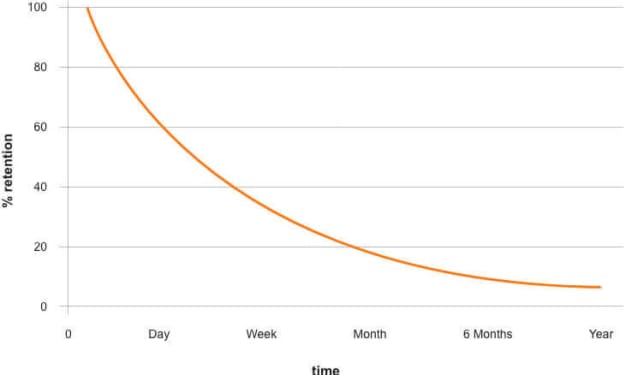
Artificial intelligence (AI) has become a powerful tool in the healthcare industry, offering the potential to improve patient outcomes, reduce costs, and increase efficiency. However, with the implementation of AI comes a number of ethical considerations, particularly when it comes to balancing efficiency with privacy. In this article, we will explore the ethics of AI in healthcare and how healthcare providers can balance the benefits of AI with patient privacy concerns.
One of the primary ethical concerns surrounding AI in healthcare is the potential for biased decision-making. AI systems learn from data, and if the data being used to train the system is biased or incomplete, then the resulting decisions may also be biased or incomplete. For example, if an AI system is trained on a dataset that is primarily composed of data from one racial group, it may not be as effective in diagnosing illnesses in other racial groups. This could lead to healthcare disparities and unequal treatment for certain patients.
To address this issue, it is important to ensure that the datasets being used to train AI systems are diverse and representative of the populations being served. Additionally, healthcare providers should be transparent about how AI is being used and the limitations of the technology, particularly when it comes to decision-making.
Another ethical concern surrounding AI in healthcare is patient privacy. AI systems can collect and process vast amounts of personal health data, which could be used to make decisions about patient care. However, there is a risk that this data could be misused or accessed by unauthorized individuals, leading to breaches of privacy.
To address these concerns, healthcare providers must implement robust data privacy and security measures. This includes implementing encryption and access controls to protect sensitive patient data. Additionally, patients must be informed about how their data is being used and have the ability to opt-out of certain uses if they choose.
One potential benefit of AI in healthcare is the ability to improve patient outcomes and reduce costs. For example, AI systems can analyze patient data to identify individuals who are at high risk for certain illnesses, allowing healthcare providers to intervene before the illness progresses. Additionally, AI systems can help healthcare providers identify the most effective treatments for individual patients, reducing the likelihood of adverse effects and improving overall outcomes.
However, there is a risk that the pursuit of efficiency and cost reduction could lead to ethical concerns, particularly when it comes to resource allocation. For example, if an AI system determines that certain patients are unlikely to benefit from a particular treatment, it may be tempting for healthcare providers to prioritize treatment for those who are deemed to be more likely to benefit. This could lead to unequal treatment for certain patients and potentially exacerbate healthcare disparities.
To address these concerns, healthcare providers must prioritize patient-centered care and ensure that decisions are made based on patient needs and values rather than solely on efficiency or cost reduction. Additionally, healthcare providers must remain transparent about how AI is being used to make decisions and involve patients in the decision-making process whenever possible.
In conclusion, the implementation of AI in healthcare offers a number of potential benefits, including improved patient outcomes, reduced costs, and increased efficiency. However, healthcare providers must also be aware of the ethical considerations surrounding AI, particularly when it comes to biased decision-making and patient privacy. By ensuring that AI systems are trained on diverse datasets, implementing robust data privacy and security measures, and prioritizing patient-centered care, healthcare providers can balance the benefits of AI with patient privacy concerns and promote ethical healthcare practices.
Furthermore, the use of AI in healthcare also raises questions around accountability and liability. If an AI system makes a decision that leads to harm or adverse outcomes for a patient, who is responsible for that decision? Is it the healthcare provider who implemented the system, the developers who created the algorithm, or the AI system itself?
To address these concerns, it is important to establish clear lines of accountability and liability. Healthcare providers should have systems in place to monitor and evaluate the performance of AI systems, and to identify and address any issues that arise. Additionally, developers should be held accountable for the accuracy and fairness of their algorithms, and should work closely with healthcare providers to ensure that AI systems are being used ethically and effectively.
Finally, it is important to recognize that the use of AI in healthcare is still a relatively new and rapidly evolving field. As such, it is likely that new ethical concerns and challenges will emerge over time. Healthcare providers must remain vigilant and adaptive, staying up-to-date on the latest developments in AI and ethical considerations, and taking proactive steps to ensure that their use of AI in healthcare remains ethical and patient-centered.
In conclusion, the ethics of artificial intelligence in healthcare requires careful consideration and management. While AI systems offer a range of potential benefits, including improved patient outcomes, reduced costs, and increased efficiency, there are also a number of ethical considerations that must be taken into account. Healthcare providers must work to balance the benefits of AI with patient privacy concerns and other ethical considerations, implementing robust data privacy and security measures, prioritizing patient-centered care, and establishing clear lines of accountability and liability. By doing so, healthcare providers can ensure that their use of AI in healthcare remains ethical and effective, promoting better outcomes for patients and a more sustainable healthcare system.





Comments
Irfan is not accepting comments at the moment
Want to show your support? Send them a one-off tip.